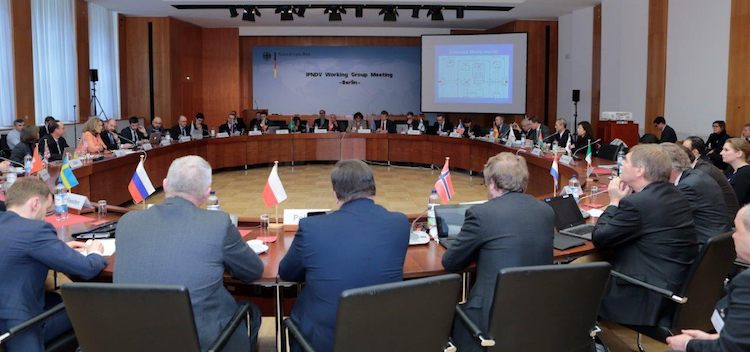By Jamshed Baruah

NEW YORK (IDN) – Since the United Nations General Assembly adopted on July 7, 2017 the Treaty on the Prohibition of Nuclear Weapons, urging the prohibition and complete elimination of the atomic arsenal, the question of verification and the dismantlement of nuclear weapons has acquired particular importance. Because there are several areas where adequate technologies either need to be developed or re-engineered.
Over the past four decades, the United States and the Soviet Union as well as its successor the Russian Federation have used a series of bilateral agreements and other measures to limit and reduce their substantial nuclear warhead and strategic missile and bomber arsenals. [P 27] JAPANESE TEXT VERSON PDF
Among the questions they have been confronted with are: How can all countries, those with and without nuclear weapons, have confidence that nuclear weapons have been dismantled? How can countries with these weapons share enough information about the process to provide confidence – but not spread sensitive information that could contribute to proliferation? Are the tools to do this even available?
The International Partnership for Nuclear Disarmament Verification (IPNDV) – a unique public-private partnership between the U.S. Department of State and the Nuclear Threat Initiative (NTI), and more than 25 countries from around the world – have been addressing the concerns of the U.S. and Russia particularly since 2014.
The U.S. Department of State’s Arms Control, Verification and Compliance (AVC) Bureau leads efforts to assess the adequacy of monitoring and verification resources, in prospective and existing nuclear arms control and disarmament agreements and commitments, as well as promotes the identification, development, and implementation of verification technologies.
NTI is a nonprofit and nongovernmental organization that works to prevent catastrophic attacks with weapons of mass destruction and disruption (WMDD) – nuclear, biological, radiological, chemical, and cyber.
From its first meeting in March 2015, the IPNDV broke new ground in building a diverse international program of work. Working cooperatively together, the Partners have made valuable progress in identifying the challenges associated with nuclear disarmament verification and identifying potential procedures and technologies to address those challenges
The Partnership’s work also builds on the U.S.-Russia monitoring and verification experience, the U.S.-UK Program on Nonproliferation and Arms Control Technology and the UK-Norway Initiative on Nuclear Warhead Dismantlement Verification.
During its fifth plenary meeting – hosted by the Argentine Ministry of Foreign Affairs and Worship in Buenos Aires from November 29 to December 1, 2017 – the IPNDV also defined a Phase II program of work to expand the scope of its activities. The work of Phase II will amplify the importance of verification in the run-up to the 2020 Nuclear Non-Proliferation Treaty (NPT) Review Conference, the Partnership sources said.
Specifically, working groups will address verification related to declarations and inventories; nuclear arms reductions; and technologies for verification. The first meeting of Phase II will take place in Sweden in March of 2018.
In opening remarks in Buenos Aires, Argentine Deputy Foreign Minister Daniel Raimondi noted that “by addressing the technical aspects involved in nuclear disarmament verification, this initiative constitutes an important step in the fulfillment of the primary obligations of nuclear weapon states that exist under Article 6 of the NPT…”
Raimondi added: “We also believe that we need to foster dialogue and confidence-building measures between nuclear and non-nuclear weapon countries. In this context, this initiative constitutes a clear example in different fora of how we could work together in reaching common understandings.”
Countries participating in the initiative are: Argentina, Australia, Belgium, Brazil, Canada, Chile, China (observer), the European Union, Finland, France, Germany, the Holy See, Indonesia, Italy, Japan, Jordan, Kazakhstan, Mexico, the Netherlands, Norway, the Philippines, Poland, Russian Federation (observer), South Korea, Sweden, Switzerland, Turkey, the United Arab Emirates, the United Kingdom, and the United States.
While the decision to address nuclear weapon dismantlement in Phase I was based on the recognition that dismantlement is one of the most important, complex, and technically challenging tasks of nuclear disarmament verification, the outcome of Phase I is essentially a tool kit outlining technologies and procedures that could provide confidence in a future monitored dismantlement process, IPNDV sources say.
IPNDV website presents in-depth papers or “deliverables” from the three Phase I working groups. The working groups addressed monitoring and verification objectives (co-chaired by the Netherlands and the United Kingdom); on-site inspections (co-chaired by Australia and Poland); and technical challenges and solutions (co-chaired by Sweden and the United States).
Papers tabled include a detailed assessment of potential monitoring and verification requirements as well as an assessment of countries’ existing capacity in this arena.
Based on the technology requirements identified by IPNDV’s Working Group 3 for weapon authentication, there are several areas where technologies either need to be developed or re-engineered for use specifically for this type of activity. [IDN-InDepthNews – 12 December 2017]
Photo: A meeting of the IPNDV in session. Credit: IPNDV
IDN is flagship agency of the International Press Syndicate.
facebook.com/IDN.GoingDeeper – twitter.com/nukeabolition






